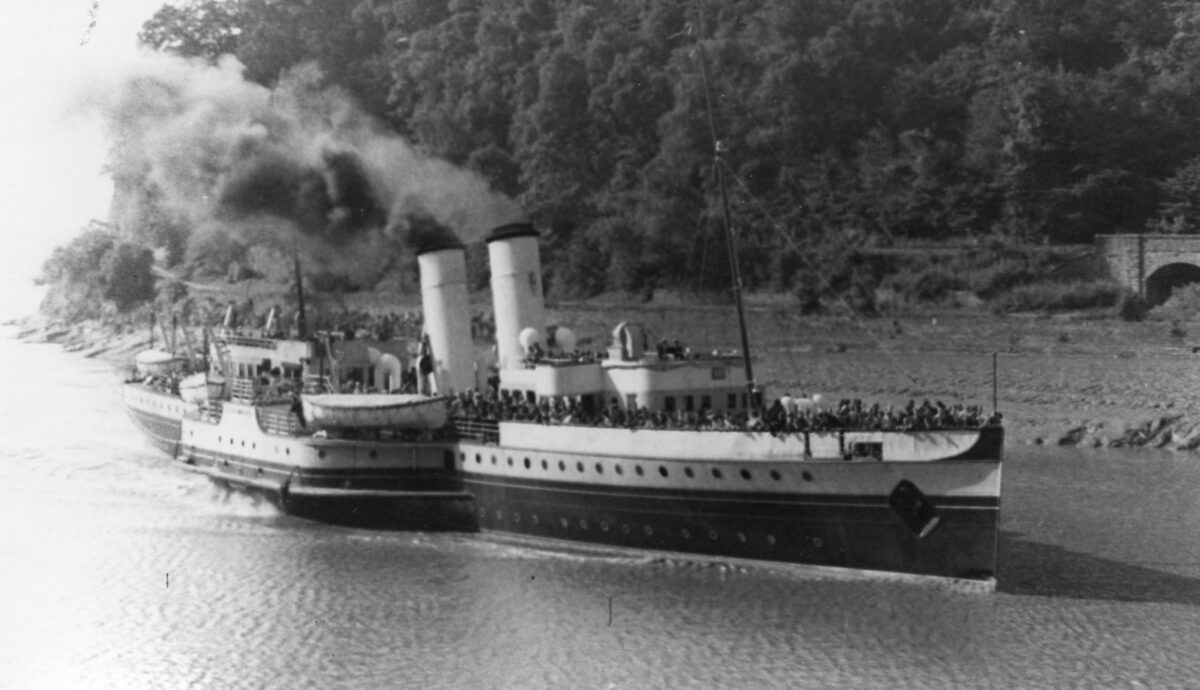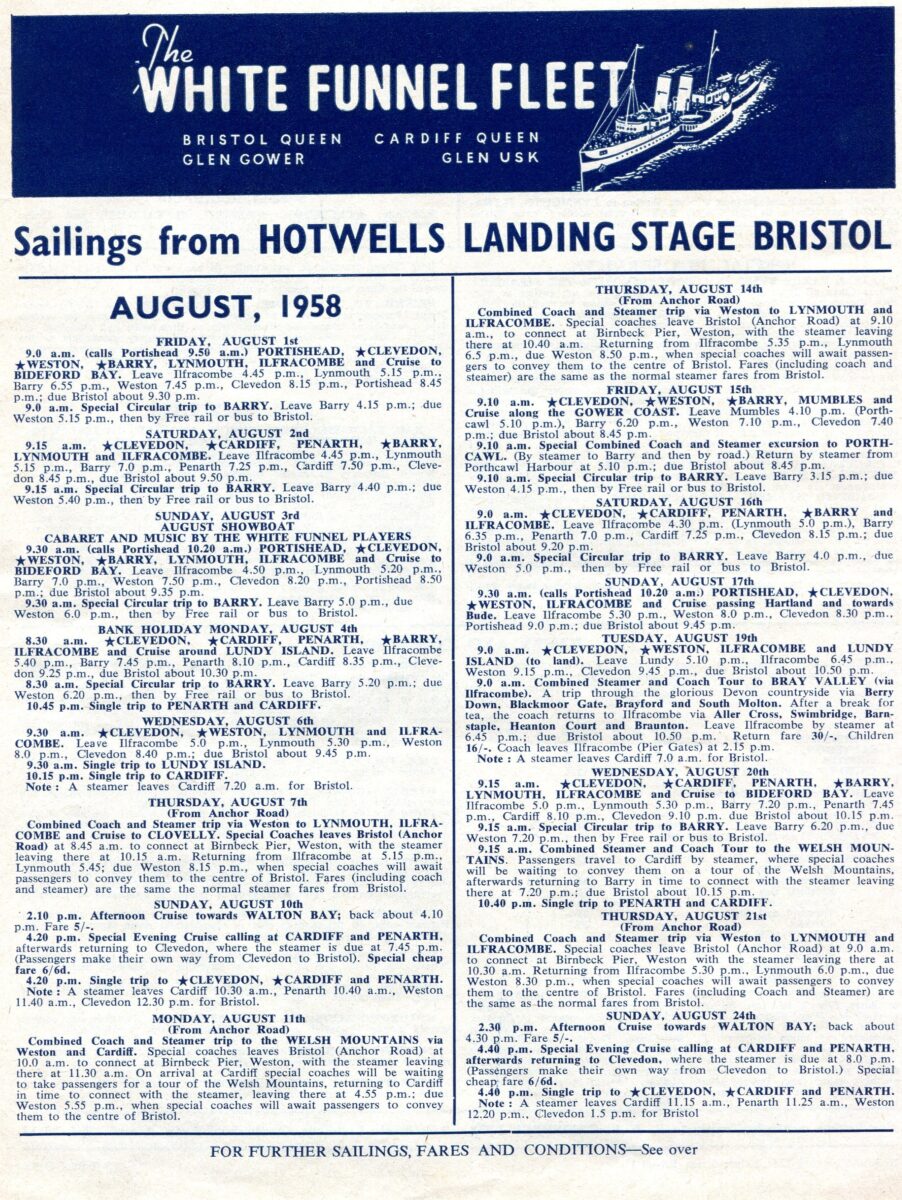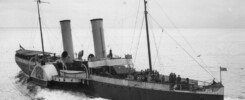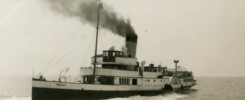
On Saturday 16h August 1958 Bristol Queen was scheduled to sail from Bristol (9am) to Clevedon (10.05am), Cardiff (11.05am), Penarth (11.15am) and, Barry (11.50am) for Ilfracombe (2pm).
She was then rostered for an afternoon cruise along the North Devon Coast before returning to Ilfracombe (4.30pm) and setting off back up Channel calling at Lynmouth (5pm), Barry (6.35pm), Penarth (7pm), Cardiff (7.25pm), Clevedon (8.15pm) and then back up the Avon to Bristol (9.20pm).
The day return fare from Bristol to Ilfracombe was 22/6 (£27 today) and the period return was 35/- (£42 today).
The distance between Barry and Ilfracombe is 33 nautical miles and the time allowed in the schedule for it on this day was a little over 2 hours which meant that Bristol Queen had to make 16 knots over the ground to get there in the time. That was fine on a day like this when she had the ebb tide down with her on the outward voyage and the flood tide back with her for the return helping her along on both legs.
Indeed these super long day trips starting at Bristol were only possible when high water Bristol was in the morning and evening which gave favourable tides all, or almost all, day.
With high water in the middle of the day or in the afternoons the steamers couldn’t get to Bristol for a morning departure and evening return and would have been punching the tide outward and inward bound when running down Channel. And at some points in the tidal cycle Bristol Channel tides can motor along at 3.5 knots, and in some areas 4 knots, so that knocks a speed of 16 knots through the water back to only 12 knots over the ground which is a bit like dragging a large ball and chain behind you. Accordingly on these days the down Channel trips started from Cardiff and Weston so there was less distance to cover in the available time.

The weather during the 1958 season was not great with loads of wind and continuing gales in late July which led to a number of cancellations.
P & A Campbell’s financial situation was becoming ever more dire and as a result the previous Friday 8th August the board had met and decided that it would be in the best interests of the Company to call in the Receiver.
The day before this cruise on Friday 15th August the board met again to confirm that a Receiver had been appointed and made the decision to close their Swansea office at the end of the 1958 season and not to base a paddle steamer there in future years. They also decided that to cut costs they would run just two paddle steamers in 1959 Cardiff Queen and Glen Usk and lay up the larger and more expensive to operate Bristol Queen.
Glen Usk was cheaper to run than Bristol Queen but she was coal fired and that presented some logistical problems. So P & A Campbell looked at converting her to oil and got as far as acquiring from Cosens the oil firing kit which had been taken off the ex Mersey ferry J Farley when Cosens converted her into a static experimental ship for the Admiralty in 1952.
However when discussed with the Board of Trade, the total cost of the project looked to be too high as such a conversion would have to have been accompanied by a major upgrade in the ship’s overall fire-proofing which would have been very expensive. Even to this day the fire- proofing requirements for a coal-fired ship are less onerous than for one with oil-firing and understandably so as a fire caused by oil is harder to contain than one caused by coal.
Bristol Queen was therefore returned to service in 1961 in place of Glen Usk, which was scrapped, and continued until 1967 when paddle wheel failure on 26th August caused her to be withdrawn. She so became the last paddle steamer to be operated by P & A Campbell.
By Saturday 16th August 1959 news of the company’s financial woes had begun to leak out and, as a result, there were a lot of bleak faces this weekend wondering what the future had in store for Bristol Channel paddle steamer services and if they had any future at all.
Kingswear Castle returned to service in 2023 after the first part of a major rebuild which is designed to set her up for the next 25 years running on the River Dart. The Paddle Steamer Kingswear Castle Trust is now fund raising for the second phase of the rebuild. You can read more about the rebuilds and how you can help if you can here.
John Megoran
This article was first published on 16th August 2020.


